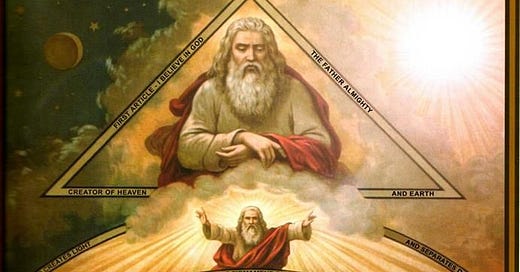We often overlook the concept of covenants today, but they’re central to the Bible’s message and to understanding God’s plan of redemption. Covenants are the backbone of God’s relationship with humanity—a divine strategy to restore people to their intended role as partners in His mission. From Genesis to Revelation, the Bible unfolds through a series of divine-human covenants, each advancing the narrative toward its fulfillment in Jesus Christ. To grasp the story of God’s saving work in Jesus is to understand His covenantal relationship with humanity.
But what exactly is a covenant? And how does this foundational theme begin?
A covenant is a kinship bond between two hitherto unrelated parties, marked by binding vows/oaths and a shared mission. Unlike a mere contract, covenants are personal and enduring. Marriage is one such example where spouses vow lifelong faithfulness and work together toward a common mission like sanctification, building a family, and journeying to sainthood together. Similarly, biblical covenants involve commitments sealed with oaths, signs, and liturgical ceremonies.
Throughout the Bible, covenants appear in various forms—personal covenants (like that of David and Jonathan), political agreements (such as Solomon and Hiram’s treaty), and legal arrangements with communities or nations. In the ancient Near East, covenants were a common framework for defining relationships and obligations. God, in His wisdom, chose to engage humanity through this familiar structure.
The Bible’s covenantal story begins in Genesis, where God creates humanity in His image and calls Adam and Eve to partner with Him as priestly rulers. Though the term “covenant” (Hebrew berit) isn’t explicitly mentioned in Genesis 1, the dynamics of their relationship mirror those of later covenants. God provides blessings of life and invites humanity to expand His goodness across creation, with a single prohibition: not to eat from the tree of the knowledge of good and evil, for doing so would bring death. Tragically, Adam and Eve fail their first test of covenant faithfulness, breaking the relationship and plunging humanity into sin and death. There is this great narrative of God being in a covenant with His creation. Pope Benedict XVI taught in Verbum Domini 6, “The prologue of John’s Gospel shows how the Logos is truly the eternal Word through whom all things were made, and the Word made flesh in Jesus Christ. The entire history of salvation is thus shown to be marked by the dynamic of the covenant between God and his creation.”
If the entire purpose of creation and its covenant was the kinship between Adam and Eve and God, then the fall was a profound violation of that intimate, sacred kinship that God was extending to all mankind through Adam and Eve. “Creation is the foundation of ‘all God’s saving plans,’ the ‘beginning of the history of salvation’ that culminates in Christ. Conversely, the mystery of Christ casts conclusive light on the mystery of creation; it reveals the end for which ‘in the beginning, God created the heavens and the earth’: from the beginning, God envisaged the glory of the new creation in Christ” (CCC 280).
This initial bond, often called the “covenant of creation,” is foundational. Though the word “covenant” isn’t directly used in Genesis 1–3, the elements are clear: God’s commands to rule the earth, cultivate the garden, and refrain from eating the forbidden fruit establish the terms. The sanction of death for disobedience (Genesis 2:17) underscores the covenant’s conditional nature, where life or death depends on Adam’s faithfulness. Even in the face of Adam’s failure, God still willed to save mankind. Benedict goes on to teach us, “God’s self-revelation in creation and in the covenant culminates in the mystery of Christ. In him, the definitive covenant is established between God and humanity, bringing creation itself to its ultimate fulfillment.” (Verbum Domini 7).
Marcus B. Peter is a reader-supported publication. To receive new posts and support my work, consider becoming a free or paid subscriber.
Crucially, this covenant operates on the principle of the call God has for mankind.—“Do this and you shall live” (Leviticus 18:5). Its blessings or curses hinge entirely on obedience, a hallmark of covenants, which grant privileges but also entail true responsibility. Scott Hahn writes that, “The account of creation in Genesis is not just about the physical world—it’s a covenant story. God is establishing a relationship with humanity. The seventh day, the day of rest, is a sign of the covenant between God and creation, marking the universe as a temple for divine worship” (A Father Who Keeps His Promises, p. 20).
So even as Adam and Eve failed, the Scriptures reveal to us how God in His infinite Fatherly Love for us began His work to repair this broken family bond, laying the groundwork for the ultimate covenant and the great gift of our salvation that was fulfilled in Christ.
Deus Benedicat





